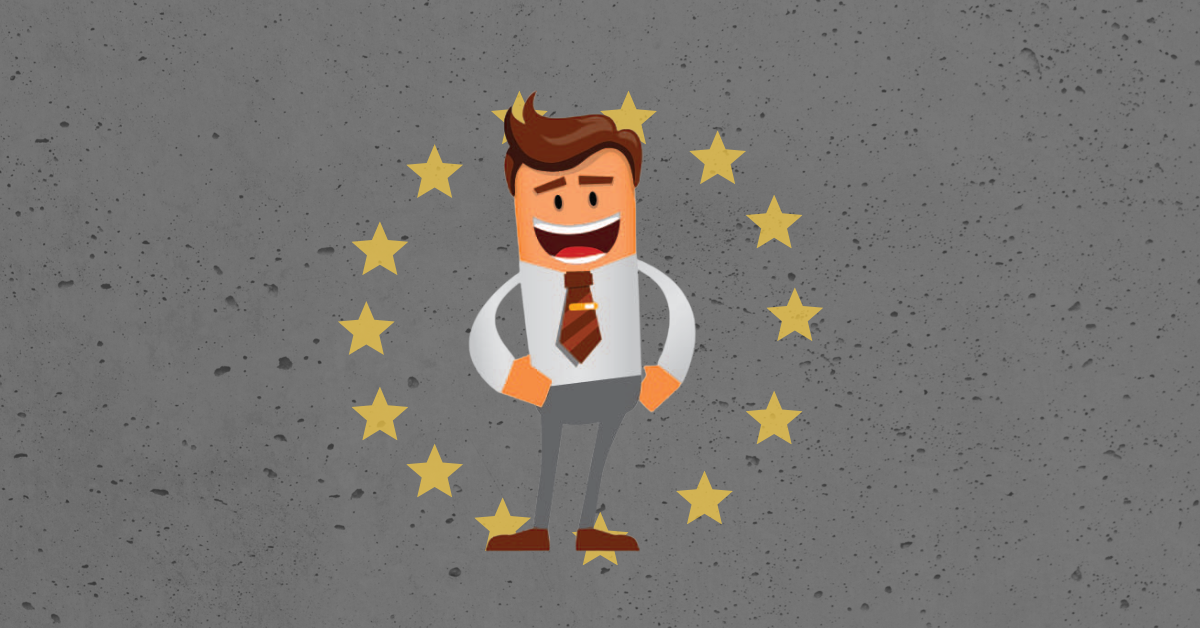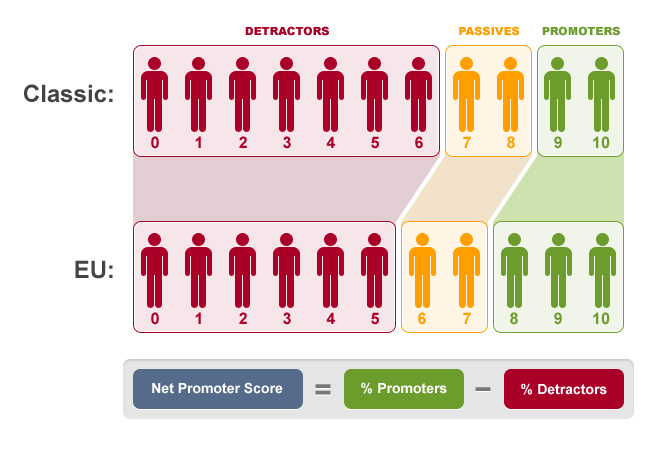Back in 2012, I wrote a popular article on the need for a European variant of Net Promoter Score which got a lot of traction, meaning it hit a nerve. It is the top search result on the topic and people ask me about it at conferences and on LinkedIn all the time. Now 9 years later, it is time to revisit the subject. We have conducted literally thousands of Net Promoter ScoreSM projects since then and have learned a lot…
Net Promoter Score is immensely popular. Business people love the simple loyalty metric. It is widely used in all industries across the globe. Soon, companies were benchmarking and basing bonuses based on NPS. That, of course, is when the trouble started. We are not a fan of purchased NPS benchmarking or basing bonuses on them. Once you do that, you turn it into a game that becomes all about the score. Of course people are going to try to game their score. I recently wrote another article about how easy it is to spike your NPS by applying small changes to how you ask it. Why would someone do that? For the same reason people want to have a European NPS… to get a higher score without the hard work of actually implementing an effective NPS program and getting everyone involved in your organization.
Scoring bias is real
Are there really differences in how respondents answer NPS between Europe and the US? Absolutely! It has to do with ‘scoring’ nature of European respondents versus American respondents. When Americans are asked to rate something on a scale of 0 to 10 they give more extreme responses as compared to their European counterparts. This scoring bias is deeply ingrained in the cultural differences between Europe and the US. American children are expected to get all A’s, even in high school. In Europe, where tests are graded on a scale of 0 to 10, students can almost never get a ten. A teacher of my daughter once said that an 8 is great, a 9 is for geniuses and 10, well only God can get a 10.
When European respondents, growing up in such a school system, are confronted with a classic NPS scale of 0 to 10, they will – if extremely satisfied – give an 8 (a compliment in their mind). I see plenty of surveys conducted in Europe based on some American template where these respondents are then asked “What can we do to get a 9 or 10?” They inevitably respond with “Nothing, I love your company!” or “Nothing, it was the best service I ever had.”
In classic NPS scoring, the 8 from these respondents has no weight! They are ignored. That is why so many European companies have neutral NPS scores. What I proposed back in 2012 is a European Net Promoter Score variant where an 8 also counts as a promoter and 6 as passive.
Here is an image from my article which graphically shows the difference, in NPS scoring that I promoted back in 2012. (Pun intended ;-) )
9 years and lots of data later…
I was wrong — I admit it. I was caught up in the struggles of my clients. I started to realize something was wrong when people started to approach me at conferences, people from all over the world, saying “You are so right, in Australia, Singapore, Canada, [enter your country here] also give lower scores…” Oops.
Then the data started coming in, we even discovered differences between European countries. For instance, Italians give more extreme scores than the Dutch. What are we going to do, have a different NPS for every country? That is no solution.
What is more, is that I discovered that European promoters are actually more likely to be, well, promoters than their American counterparts. Sure Americans say that they are likely to recommend a company. But do they actually do it? Is anyone asking that question? Are you following up on your promoters after a period to see if they recommended you to anyone? Since Europeans in general don’t give 9s and 10s so quickly, those are real promoters!
One of the arguments I hear a lot in favor of EU-NPS is that an 8 in Europe means ‘good’. I agree, 8 is ‘good’. But — I always use a restaurant as an example, since everyone can relate — if you ate in a restaurant and gave it an 8, I am talking to you Europeans… would you really go to work the next day and tell everyone in the break room that they have to go eat there? No, I didn’t think so.
NPS is not a satisfaction question, it is a loyalty question, that asks a respondent, if they would stake their reputation on a recommendation. It is a loaded question that asks a lot of the respondent… and ‘8’ is just not a ringing endorsement, in any culture.
So how do you raise your NPS?
The old-fashioned way. Improve your products and services. See the articles below for some concrete ideas.
What do you think? Let me know in the comments below.
Net Promoter and NPS are registered service marks, and Net Promoter Score and Net Promoter System are service marks, of Bain & Company, Inc., Satmetrix Systems, Inc. and Fred Reichheld.


Leave a Reply